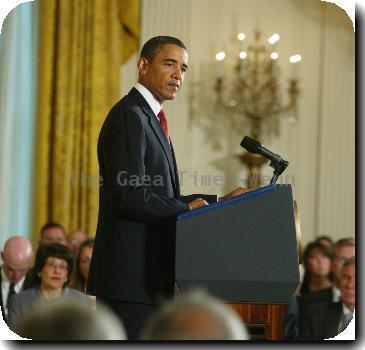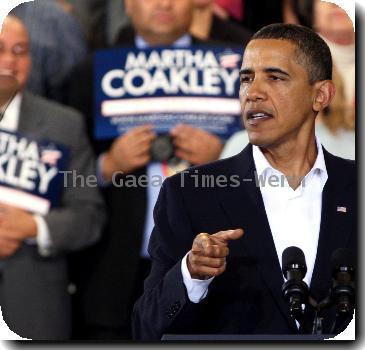House panel resolution brands WWI-era killing of Armenians a genocide; Turkey pulls ambassador
By Desmond Butler, APFriday, March 5, 2010
Armenian genocide resolution wins House panel OK
WASHINGTON — Turkey was warning of a breakdown in cooperation with the United States after a congressional committee approved a resolution branding the World War I-era killing of Armenians a genocide.
The House Foreign Affairs Committee endorsed the resolution, which Turkey sees as a historical affront, over the objections of President Barack Obama. Minutes after the vote, Turkey angrily withdrew its ambassador to Washington.
The 23-22 vote sends the measure to the full House, where prospects for passage are uncertain.
“I declare such a decision that was taken with political concerns in mind to be an injustice to history and to the science of history,” Turkish President Abdullah Gul said in the capital, Ankara.
“Turkey will not be responsible for the negative results that this event may lead to.”
The Turkish government also warned in a statement that the vote “could adversely affect our cooperation on a wide common agenda with the United States.”
The vote comes as the United States is pushing for new sanctions against Iran to be approved by the U.N. Security Council, where Turkey currently holds a seat. Turkish cooperation is also important to U.S. operations in Iraq and Afghanistan.
The Obama administration had been silent about the resolution until shortly before the vote. In statements Thursday, the administration made clear it was opposed to its passage, because it fears it could upset reconciliation talks between Turkey and Armenia.
Turkey’s ambassador to Washington, Namik Tan, welcomed the Obama administration’s opposition to the resolution, but said he wished it had come sooner.
An agreement reached in October between Turkey and Armenia calls for the opening of the border between the two countries, but Turkey’s parliament has yet to ratify it. The agreement also calls for a panel to discuss “the historical dimension” of the killings. Turkey says U.S. lawmakers should stay out of the issue.
Historians estimate that up to 1.5 million Armenians were killed by Ottoman Turks around the time of World War I, an event widely viewed by scholars as the first genocide of the 20th century. Turkey denies that the deaths constituted genocide, saying the toll has been inflated and those killed were victims of civil war and unrest.
Armenian American groups have sought congressional affirmation of the killings as genocide for decades and welcomed Thursday’s vote.
“The committee’s message was simple yet powerful: Turkey doesn’t get a vote or a veto in the U.S. Congress,” said Ken Hachikian, chairman of the Armenian National Committee of America.
The committee’s vote is awkward for Obama, who pledged as a presidential candidate to recognize the Armenian deaths as a genocide. The administration reversed course, as Secretary of State Hillary Rodham Clinton acknowledged Thursday.
“Circumstances have changed in very significant ways,” Clinton told reporters traveling with her in Costa Rica.
She said the United States supports efforts to resolve the historical dispute.
“We think that is the appropriate way to manage the problems that have stood in the way of normalization between the two countries,” Clinton said.
Clinton said the Obama administration is concerned the resolution could harm the talks between Turkey and Armenia.
“We do not believe that the full Congress will or should act upon that resolution and we have made that clear to all the parties involved,” she said.
The Foreign Affairs Committee approved a similar genocide measure in 2007, but it was not brought to the House floor for a vote following intensive pressure by then-President George W. Bush.
Associated Press writers Suzan Fraser in Ankara, Turkey; Matthew Lee in San Jose, Costa Rica; and Darlene Superville in Washington contributed to this report.
Tags: Armenia, Barack Obama, Central America, Costa Rica, Eastern Europe, Europe, Genocides, International Agreements, Latin America And Caribbean, Middle East, North America, Turkey, United States, Washington, Western Europe



